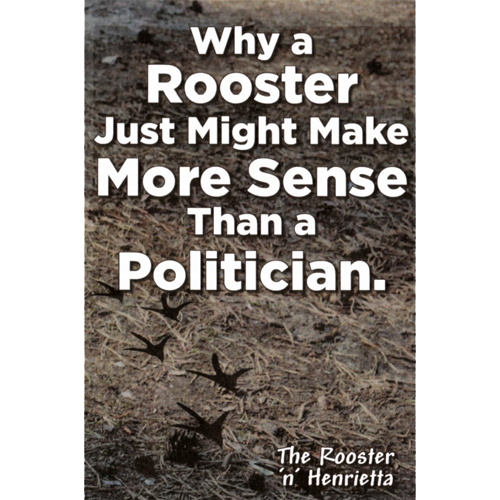Conserving Their Future Restraining Citizens’ Rights by Leith Coghlin
- 2017-09-01
- By admin
- Posted in Latest News
Every landowner in Ontario should be worried about Bill 139.
In May, the provincial government tabled Bill 139, the Building Better Communities and
Conserving Watersheds Act, 2017. The legislation is the culmination of several years of work at the behest of both the conservation authorities’ lobby and municipalities who all view the current Act as outdated and restrictive.
But if you are a landowner in Ontario, Bill 139 gives conservation authorities and municipalities more power, reduces citizens’ avenues for appeal and procedural grounds to seek remedy, and will doubtless embolden smaller authorities to consider merging operations with larger peers ostensibly on the justifications of cost efficiencies and providing ‘better’ service.
In Part VI of the proposed amendments, Bill 139 enlarges the scope of what a conservation authority can prohibit by expanding its permitting procedures and potentially allowing blanket prohibitions. The appeals mechanisms have been reduced and made harder by the imposition of tight timelines and confining review either to the authority itself or the minister.
Most alarming is that under the enforcement and offences provisions, conservation authorities may now enter “any land situated in the authority’s area for the purposes of determining compliance…,” with its permits, prohibited activities/development, etc… The current Conservation Authorities Act limits warrantless entry to two provisions the second of which is only when obvious or “significant environmental damage,” is occurring and “entry is required to prevent or reduce the damage.”
A position articulated ad nauseam by Conservation Ontario, a private lobby group established by conservation authorities using public money to liaise with the province, is that many smaller authorities and municipalities cannot offer the same services or degree of assistance that larger authorities can. Bill 139 makes more than two dozen amendments to make it easier for authorities to consolidate and enlarge.
Ontario has failed in numerous governmental reorganizations involving ‘consolidation’ of local agencies into larger, multi-jurisdictional institutions that end up eroding local control and review. Smaller municipalities are beholden to the larger ones on boards where size equals the number of representatives on the board. Conservation authorities across the province have long had the opportunity to collaborate not only among themselves to pool and share resources on areas like planning and service delivery but also to collaborate with their constituent municipalities.
Of course, this has not happened on a large scale because conservation authorities want exclusive control and expansion of their funding and staffing.
The prevailing posture of conservation authorities and their apologists in Ontario for years has been that conservation effectively means leaving nature alone. Their concept of “management” means “do nothing,” and “stop everything.” Conservation authorities have repeatedly demonstrated an antagonistic view toward development and landowner rights. They further fail to understand that true conservation involves balance, collaboration, and dialogue. Balance is about working with citizens to integrate them into their watersheds and local habitat. Collaboration is about using consultation and strong stakeholder involvement to guide policies and ultimately statutes that reflect balance. Dialogue means listening and incorporating a merit based and diverse set of views and conclusions on each issue.
Not only do conservation authorities and municipalities fail to understand those three concepts of conservation, now Bill 139 protects them from even having to try.
Leith Coghlin is the managing director of EnPointe Development Incorporated, a London-based advocacy and public policy firm that represents individual citizens and private businesses exclusively.
Search:
Categories
Archives
- April 2024
- January 2024
- December 2023
- November 2023
- August 2023
- July 2023
- June 2023
- May 2023
- April 2023
- March 2023
- February 2023
- January 2023
- December 2022
- November 2022
- October 2022
- September 2022
- August 2022
- July 2022
- June 2022
- May 2022
- April 2022
- March 2022
- February 2022
- January 2022
- December 2021
- November 2021
- October 2021
- September 2021
- August 2021
- July 2021
- June 2021
- May 2021
- April 2021
- March 2021
- February 2021
- January 2021
- December 2020
- November 2020
- October 2020
- September 2020
- August 2020
- July 2020
- June 2020
- May 2020
- April 2020
- March 2020
- February 2020
- January 2020
- December 2019
- November 2019
- October 2019
- September 2019
- August 2019
- July 2019
- June 2019
- May 2019
- April 2019
- March 2019
- February 2019
- January 2019
- December 2018
- November 2018
- October 2018
- September 2018
- August 2018
- July 2018
- June 2018
- May 2018
- April 2018
- March 2018
- February 2018
- January 2018
- December 2017
- November 2017
- October 2017
- September 2017
- August 2017
- July 2017
- June 2017
- May 2017
- April 2017
- March 2017
- February 2017
- January 2017
- December 2016
- November 2016
- October 2016
- September 2016
- August 2016
- July 2016
- June 2016
- May 2016
- April 2016
- March 2016
- February 2016
- January 2016
- December 2015
- November 2015
- October 2015
- September 2015
- August 2015
- July 2015
- June 2015
- May 2015
- April 2015
- March 2015
- February 2015
- January 2015
- December 2014
- November 2014
- October 2014
- September 2014
- August 2014
- July 2014
- June 2014
- May 2014
- April 2014
- March 2014
- February 2014
- January 2014
- December 2013
- November 2013
- October 2013
- September 2013
- August 2013
- June 2013
- April 2013
- October 2012
- May 2012
- September 2011



